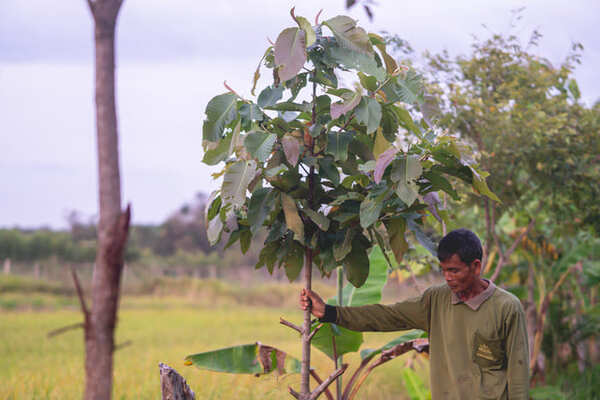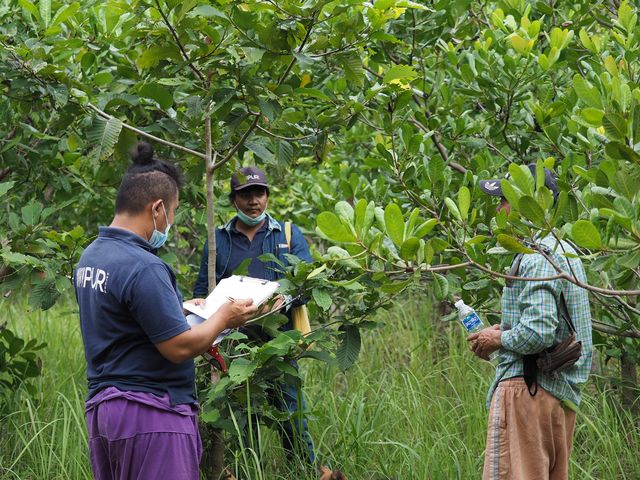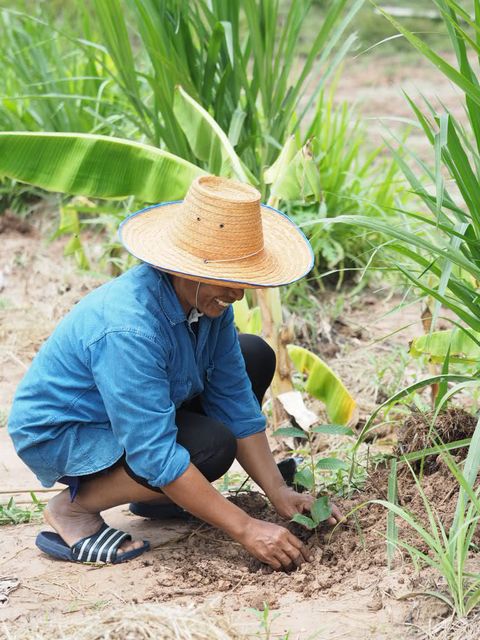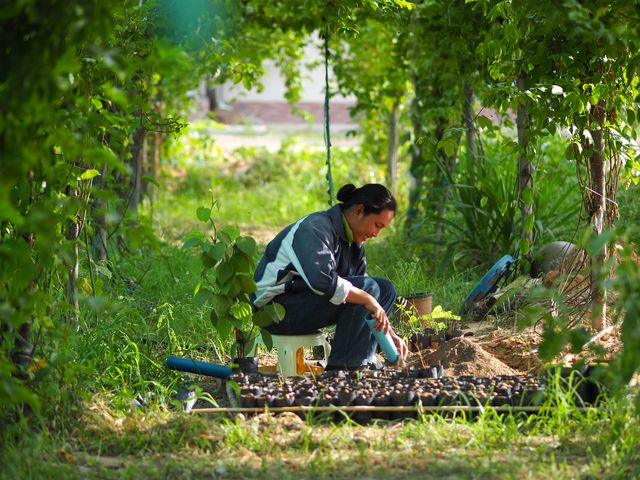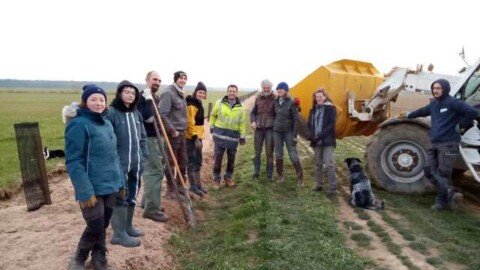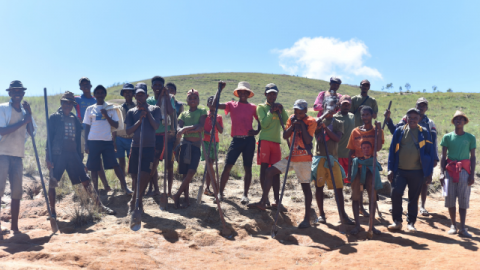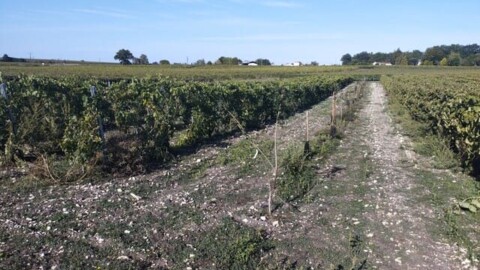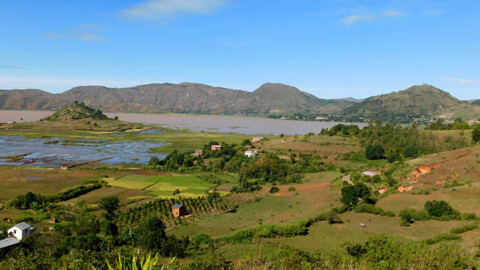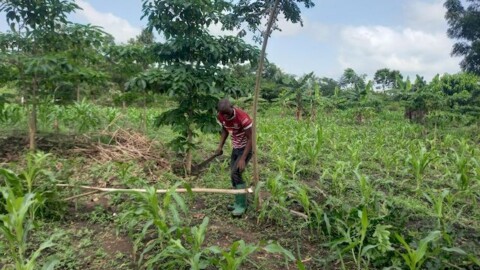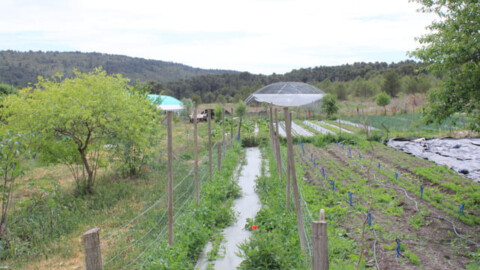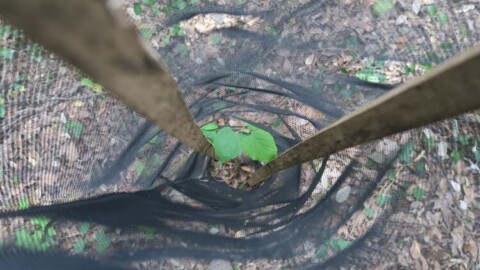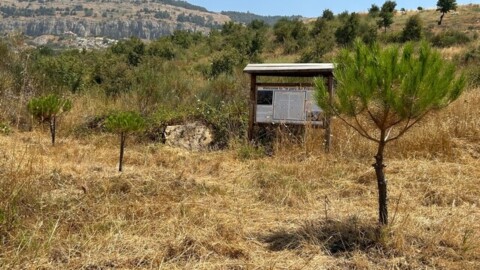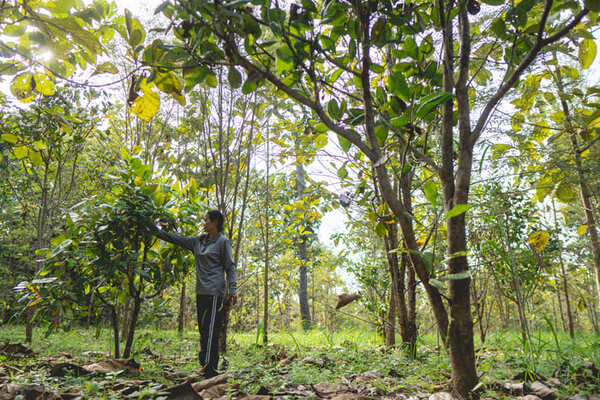
Thailand, January 2023
Summary of the goals
The Dhamma Rakhsa project aims to help small, organic rice producers in the Isan region diversify their income and regenerate the ecosystems their livelihoods depend on. In this region, the soil and biodiversity desperately needs a boost. The project includes planting a community forest and introducing an agroforestry system in the rice fields.
The aim is to plant 3,300 trees, 2,500 of which will be permanent by the end of the project. This project is being carried out in the field by PUR Projet, a partner of A Tree for You.
Overview of the different stages
The project began in November 2019 with a presentation to the rice producers in the community. Those expressing interest were selected and started training in January 2020. They received trained throughout the project.
Between January and June 2020, the local technical teams prepared the seedlings and visited the nurseries to ensure the young trees were developing well. The plants were then transported to the beneficiaries’ plots and planted between June and August 2020. A total of 2,500 seedlings were planted in the first year.
In a second phase, 800 trees were planted in June 2021 to complete the first.
The beneficiaries received training throughout the project:
- introduction to agroforestry and rice production;
- training field agronomists and experience sharing;
- training on tree maintenance;
- training on good planting methods and different models.
Once the plantations were completed, the local technicians accompanied the beneficiaries in the follow-up and maintenance of the trees planted. To do this, they visited each producer’s plot and recorded every living tree by species. To understand their observations, they complement the visit with an exchange with the beneficiaries on the causes of tree mortality and/or the survival rate for each of the plots.
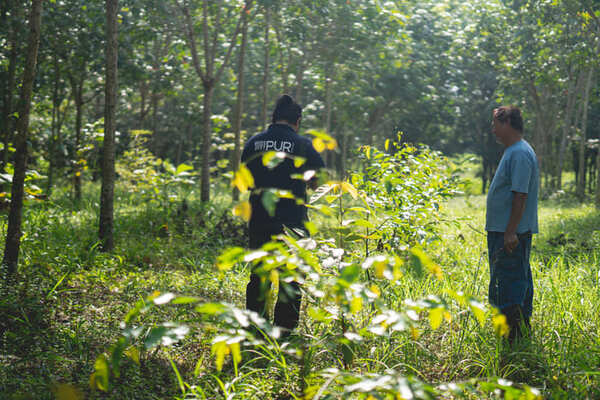
Difficulties encountered
The project met with some difficulties, yet successfully overcame them thanks to the determination, adaptability, and commitment of the local teams and beneficiaries.
COVID-19 took the whole world by storm at the very beginning of the project. Restrictions in Thailand due to the pandemic complicated the first stages, especially presenting the project to the producers and setting up the community nursery. Once Covid slowed down in the region and health measures were relaxed, the project picked up well without too much delay in the work schedule.
The real challenge for the project was the surprisingly irregular rainfall, most likely linked to climate change. The rainy season usually starts in June and ends in early September. In 2020, although the rains began on time, they were quickly followed by a month of sudden drought, causing plant mortality as early as July 2020.
In response, the beneficiaries and technical team replanted the trees. Planting was completed in August 2020. The technical teams are also continuing to ask the producers about the hydrological history of their land in order to adapt the design and species to climate change.
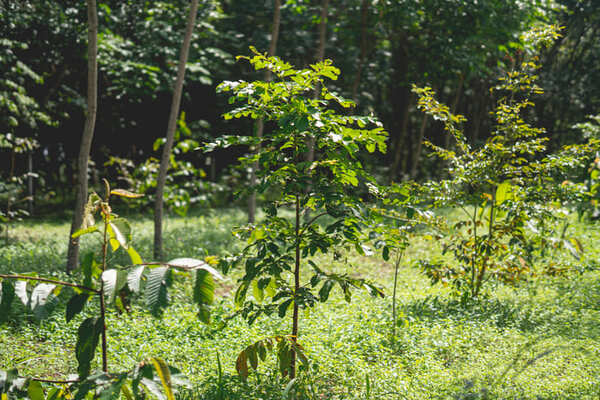
The project goals have been met and the beneficiaries are delighted!
A total of 3,300 trees of 17 different species were planted by small rice farmers in the Isan region of Thailand.
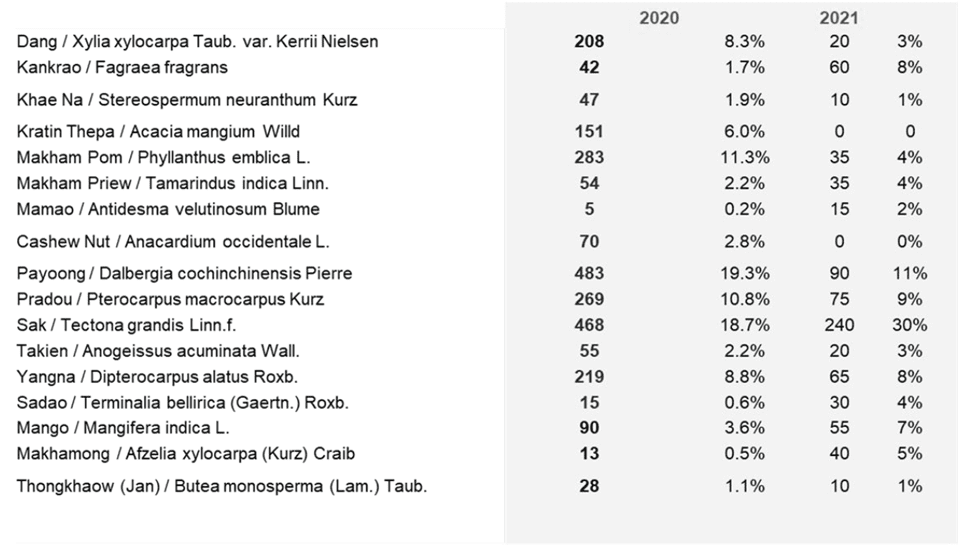
Thanks to monitoring and successful management of the difficulties encountered in the field the trees achieved a good survival rate. As a reminder, the project goal was to plant 3,300 trees to obtain 2,500 lasting trees. The objective was reached and even slightly exceeded, with a total of 2,630 trees growing at the project end.
The good survival rate is down to good control of non-climatic phenomena (transport, seedling quality, planting practices), especially thanks to the training of producers and regular visits to the nurseries. The mortality of seedlings due to climate change and shifts in the rainy season, in particular, meant the project had to adapt by adoping different approaches – for instance, by changing the dates for planting, or the species selected to include trees that can cope better with water shortages.
Feedback from beneficiaries:
Chaedchai Klinhom: “Year after year we see the impacts of climate change on our rice crops. It’s just too hot to have an annual rice crop. I hope the trees will help cool the temperatures by creating a microclimate.”
Siriwat Wongwian: “For too long we have depended on rice and rice only for our income. Agroforestry is a good solution for increasing and diversifying this income.”
Sombat Oragul: “Until now, in my village, projects came to us, dropped off trees and departed. This one is different because there the support and knowledge sharing helps improve the way we work.”
